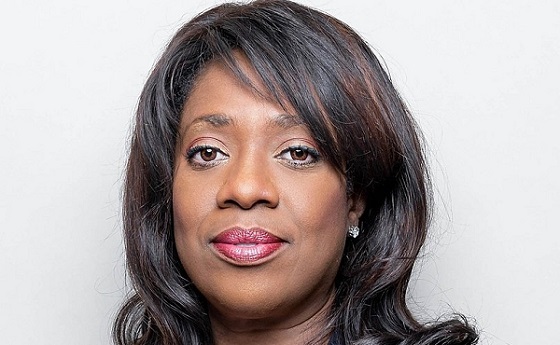Alberta
“We’re doing our best to be prepared for anything”

Little more than a month ago, members of the Alberta Colleges Athletic Conference – and the fans and parents who care about this under-valued level of college sport — were seriously focused on next week – specifically a Monday morning meeting in Medicine Hat.
For many years, interest and intensity have grown at this time of year. The month of May marks the formal start of preparation for the coming season, primarily soccer and golf and cross-country. A lot of details are needed to have everything ready when the first flag flies.
This year is bound to be different. Possible change, everywhere, is set for debate during the five-day annual general meeting.
Mark Kosak, the ACAC’s chief executive officer, made clear his belief that the major issues, time and money, must be faced head-on. Several outlines will be considered in a virtual meeting – “lots of protocols and requirements in place.” All participants have some insight to his combination of caution and aggression.
“So many complexities, so many variables,” Kosak said. “We’re doing our best to be prepared for anything.” He specified the pressure of dealing with COVID-19, of course, but also dealt with an ongoing issue in minor and amateur sports at all levels: “Everybody has financial troubles” that existed long before the pandemic arrived.
Front and centre is the need for the Augustana Vikings to complete the elimination of men’s soccer (the women’s program will survive) and to continue the community- and alumni-led bid to keep men’s hockey alive despite intense financial pressures. An interesting conundrum presented by Kosak: the backlash faced by Keyano College officials when they eliminated their Huskies hockey team a few years back and resulted in an about-face. “We have a proposal from Keyano to enter both men’s and women’s hockey; now, Keyano has agreed to wait until next year for a decision.”
“Honestly, there’s no real chance to tell what’s going to happen,” Jason Richey, head of the NAIT Ooks athlete program, said in a brief recent discussion. “As far as I can tell, the only way to avoid cutting some of our early sports is if, somehow, the distancing regulations are changed in time, but it’s too early to count on that, I think.”
Three options – all tied to the paced of reopening the economy — will be discussed in Medicine Hat. One Saskatchewan team, the Briercrest Clippers, may face regulations different from the bulk of ACAC members.
Kosak’s proposals:
* Start on schedule, Sept. 15 or thereabouts, with first-term sports such as soccer, cross-country and golf;
* Prepare for a potential Oct. 1 start, requiring less play in those three sports but maintaining full activity in the others.
* Eliminate the early events if necessary and prepare to begin remaining sports after Christmas. keeping them at the busiest possible level: futsal indoors rather than the outdoor game; maybe one full golf tournament in the fall; possibly a series of indoor track meets.
Kosak and others have been somewhat successful, in building fan interest in the ACAC, whose sports have been attended for years by mostly small crowds. Some growth in regional and national interest has shown in college-level championships, although crowds still remain far below the level of attendance for Canada’s national university playoffs.
Alberta
Alberta bill would protect freedom of expression for doctors, nurses, other professionals

From LifeSiteNews
‘Peterson’s law,’ named for Canadian psychologist Jordan Peterson, was introduced by Alberta Premier Danielle Smith.
Alberta’s Conservative government introduced a new law that will set “clear expectations” for professional regulatory bodies to respect freedom of speech on social media and online for doctors, nurses, engineers, and other professionals.
The new law, named “Peterson’s law” after Canadian psychologist Jordan Peterson, who was canceled by his regulatory body, was introduced Thursday by Alberta Premier Danielle Smith.
“Professionals should never fear losing their license or career because of a social media post, an interview, or a personal opinion expressed on their own time,” Smith said in a press release sent to media and LifeSiteNews.
“Alberta’s government is restoring fairness and neutrality so regulators focus on competence and ethics, not policing beliefs. Every Albertan has the right to speak freely without ideological enforcement or intimidation, and this legislation makes that protection real.”
The law, known as Bill 13, the Regulated Professions Neutrality Act, will “set clear expectations for professional regulatory bodies to ensure professionals’ right to free expression is protected.”
According to the government, the new law will “Limit professional regulatory bodies from disciplining professionals for expressive off-duty conduct, except in specific circumstances such as threats of physical violence or a criminal conviction.”
It will also restrict mandatory training “unrelated to competence or ethics, such as diversity, equity, and inclusion training.”
Bill 13, once it becomes law, which is all but guaranteed as Smith’s United Conservative Party (UCP) holds a majority, will also “create principles of neutrality that prohibit professional regulatory bodies from assigning value, blame or different treatment to individuals based on personally held views or political beliefs.”
As reported by LifeSiteNews, Peterson has been embattled with the College of Psychologists of Ontario (CPO) after it mandated he undergo social media “training” to keep his license following posts he made on X, formerly Twitter, criticizing Trudeau and LGBT activists.
He recently noted how the CPO offered him a deal to “be bought,” in which the legal fees owed to them after losing his court challenge could be waived but only if he agreed to quit his job as a psychologist.
Early this year, LifeSiteNews reported that the CPO had selected Peterson’s “re-education coach” for having publicly opposed the LGBT agenda.
The Alberta government directly referenced Peterson’s (who is from Alberta originally) plight with the CPO, noting “the disciplinary proceedings against Dr. Jordan Peterson by the College of Psychologists of Ontario, demonstrate how regulatory bodies can extend their reach into personal expression rather than professional competence.”
“Similar cases involving nurses, engineers and other professionals revealed a growing pattern: individuals facing investigations, penalties or compulsory ideological training for off-duty expressive conduct. These incidents became a catalyst, confirming the need for clear legislative boundaries that protect free expression while preserving professional standards.”
Alberta Minister of Justice and Attorney General Mickey Amery said regarding Bill 13 that the new law makes that protection of professionals “real and holds professional regulatory bodies to a clear standard.”
Last year, Peterson formally announced his departure from Canada in favor of moving to the United States, saying his birth nation has become a “totalitarian hell hole.”
Alberta
‘Weird and wonderful’ wells are boosting oil production in Alberta and Saskatchewan

From the Canadian Energy Centre
Multilateral designs lift more energy with a smaller environmental footprint
A “weird and wonderful” drilling innovation in Alberta is helping producers tap more oil and gas at lower cost and with less environmental impact.
With names like fishbone, fan, comb-over and stingray, “multilateral” wells turn a single wellbore from the surface into multiple horizontal legs underground.
“They do look spectacular, and they are making quite a bit of money for small companies, so there’s a lot of interest from investors,” said Calin Dragoie, vice-president of geoscience with Calgary-based Chinook Consulting Services.
Dragoie, who has extensively studied the use of multilateral wells, said the technology takes horizontal drilling — which itself revolutionized oil and gas production — to the next level.
“It’s something that was not invented in Canada, but was perfected here. And it’s something that I think in the next few years will be exported as a technology to other parts of the world,” he said.
Dragoie’s research found that in 2015 less than 10 per cent of metres drilled in Western Canada came from multilateral wells. By last year, that share had climbed to nearly 60 per cent.
Royalty incentives in Alberta have accelerated the trend, and Saskatchewan has introduced similar policy.
Multilaterals first emerged alongside horizontal drilling in the late 1990s and early 2000s, Dragoie said. But today’s multilaterals are longer, more complex and more productive.
The main play is in Alberta’s Marten Hills region, where producers are using multilaterals to produce shallow heavy oil.
Today’s average multilateral has about 7.5 horizontal legs from a single surface location, up from four or six just a few years ago, Dragoie said.
One record-setting well in Alberta drilled by Tamarack Valley Energy in 2023 features 11 legs stretching two miles each, for a total subsurface reach of 33 kilometres — the longest well in Canada.
By accessing large volumes of oil and gas from a single surface pad, multilaterals reduce land impact by a factor of five to ten compared to conventional wells, he said.
The designs save money by skipping casing strings and cement in each leg, and production is amplified as a result of increased reservoir contact.
Here are examples of multilateral well design. Images courtesy Chinook Consulting Services.
Parallel
Fishbone
Fan
Waffle
Stingray
Frankenwells
-

 COVID-1914 hours ago
COVID-1914 hours agoNew report warns Ottawa’s ‘nudge’ unit erodes democracy and public trust
-

 Great Reset2 days ago
Great Reset2 days agoEXCLUSIVE: A Provincial RCMP Veterans’ Association IS TARGETING VETERANS with Euthanasia
-

 Health2 days ago
Health2 days agoDisabled Canadians petition Parliament to reverse MAiD for non-terminal conditions
-

 Daily Caller2 days ago
Daily Caller2 days agoSpreading Sedition? Media Defends Democrats Calling On Soldiers And Officers To Defy Chain Of Command
-

 Crime1 day ago
Crime1 day agoHow Global Organized Crime Took Root In Canada
-

 Digital ID2 days ago
Digital ID2 days agoLeslyn Lewis urges fellow MPs to oppose Liberal push for mandatory digital IDs
-

 Business2 days ago
Business2 days agoThe Payout Path For Indigenous Claims Is Now National Policy
-

 Energy1 day ago
Energy1 day agoExpanding Canadian energy production could help lower global emissions













